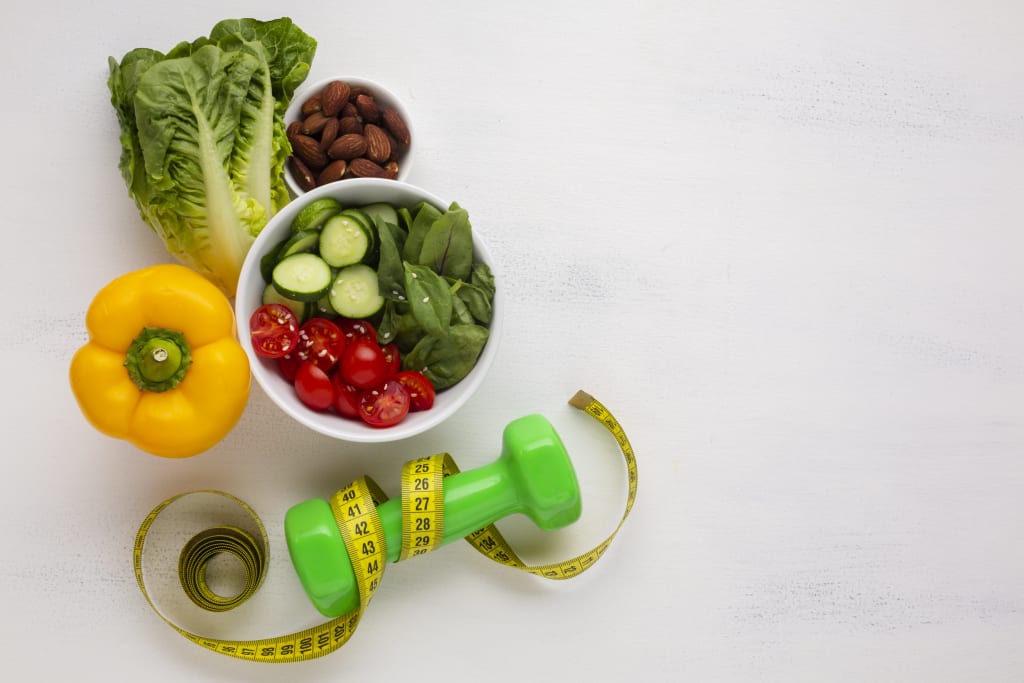Key To A Healthy and Balance Diet
Maintaining A healthy Life 2023

A balanced and healthy diet is crucial for maintaining optimal physical and mental health. Consisting of a variety of nutrient-dense foods, such as fruits and vegetables, whole grains, lean proteins, and healthy fats, can help ensure you get all the essential nutrients your body needs to function at its best. Healthy Eating: The Importance of Incorporating Nutritious Foods into Your Diet.
Eating a balanced and nutritious diet is a key component of leading a healthy lifestyle. Incorporating healthy foods into your diet can have numerous benefits, including reducing your risk of chronic diseases, promoting weight loss, and improving overall physical and mental well-being.
So, what exactly constitutes a healthy diet? The key is to consume a variety of nutrient-dense foods that are high in vitamins, minerals, and antioxidants, while also limiting processed and sugary foods.
Here are some of the most nutritious foods you should consider incorporating into your diet:
1. Fruits and Vegetables: Fruits and vegetables are packed with essential vitamins, minerals, and fiber. Aim to consume a variety of colorful produce, such as berries, leafy greens, and bell peppers, as different colors contain different nutrients.
2. Whole Grains: Whole grains, such as brown rice, quinoa, and whole wheat bread, are an excellent source of fiber, vitamins, and minerals. They also provide energy and help regulate blood sugar levels.
3. Lean Proteins: Incorporating lean proteins, such as chicken, fish, and beans, into your diet is important for building and repairing muscle tissue. They also help you feel full and satisfied.
4. Nuts and Seeds: Nuts and seeds, such as almonds, chia seeds, and flaxseeds, are high in healthy fats, protein, and fiber. They are also a great source of vitamins and minerals.
5. Dairy Products: Low-fat dairy products, such as milk, yogurt, and cheese, are excellent sources of calcium, which is essential for strong bones. They also provide protein and other essential vitamins and minerals.
It's also important to limit your intake of unhealthy foods, such as processed snacks, sugary drinks, and high-fat meats. These foods are high in calories and low in nutrients, which can lead to weight gain and increase your risk of chronic diseases.
Incorporating nutritious foods into your diet is essential for maintaining a healthy lifestyle. By consuming a variety of nutrient-dense foods and limiting processed and sugary foods, you can improve your overall physical and mental well-being and reduce your risk of chronic diseases.
Here are some tips for avoiding unhealthy foods:
1. Plan your meals: Make a grocery list and stick to it to avoid impulse purchases of unhealthy snacks.
2. Pack healthy snacks: Keep healthy snacks, such as fruit, nuts, and vegetables, readily available for when hunger strikes.
3. Cook at home: Cooking your own meals gives you control over the ingredients and allows you to make healthier choices.
4. Limit eating out: Eating out often means eating high-calorie, high-fat, and highly processed foods.
5. Read labels: Get in the habit of reading ingredient labels to identify added sugars and unhealthy ingredients.
6. Stay hydrated: Drink plenty of water and limit sugary drinks.
7. Mindful eating: Take the time to enjoy your food and pay attention to your hunger and fullness cues.
8. Surround yourself with support: Seek support from friends and family to help you make healthy choices.
9. Find healthy substitutes: Experiment with healthier alternatives to your favorite unhealthy foods.
10. Keep healthy foods within reach: Store healthy foods, such as fruits and vegetables, at eye-level in the fridge for easy access.
Remember, it's okay to treat yourself occasionally, but making a conscious effort to choose healthier options most of the time will lead to a healthier overall diet
Here are some more tips for balancing a healthy diet:
1. Eat a variety of foods: Incorporate a variety of nutritious foods into your diet, including fruits, vegetables, whole grains, lean proteins, and healthy fats.
2. Control portion sizes: Use smaller plates and bowls, and pay attention to serving sizes to avoid overeating.
3. Limit processed and sugary foods: Avoid foods high in added sugars and unhealthy fats, and limit your consumption of processed snacks.
4. Incorporate healthy fats: Choose foods rich in healthy fats, such as avocado, nuts, and olive oil, to promote heart health and reduce inflammation.
5. Stay hydrated: Drink plenty of water throughout the day and limit sugary drinks.
6. Plan ahead: Prepare healthy meals in advance and pack healthy snacks to avoid unhealthy options when on the go.
7. Be mindful of eating habits: Pay attention to hunger and fullness cues and avoid eating when stressed or emotional.
8. Get enough fiber: Incorporate fiber-rich foods, such as fruits, vegetables, and whole grains, into your diet to promote satiety and support digestive health.
9. Limit salt intake: Reduce your salt intake to lower your risk of high blood pressure and heart disease.
10. Enjoy meals with others: Eating with friends and family can help to reduce stress and promote mindful eating habits.
In conclusion, always remember balancing a healthy diet is about finding a sustainable way of eating that works for you and includes a variety of nutritious foods. "Incorporating a balanced and healthy diet into your daily routine can have numerous positive impacts on your overall well-being, such as improved energy levels, reduced risk of chronic diseases, and enhanced mental clarity. Start small by making simple swaps in your eating habits and gradually work towards developing a healthy and sustainable eating pattern."
https://www.digistore24.com/redir/283755/asad535/





Comments
There are no comments for this story
Be the first to respond and start the conversation.